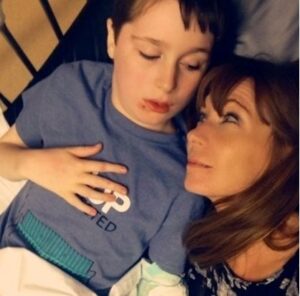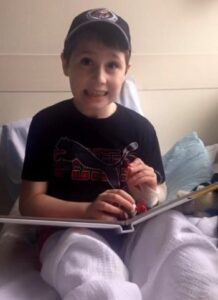My son Neil has profound autism. While he is nonverbal, he communicates through his behavior.
 When Neil was 14, he was in terrible distress, crying, clearly in pain, and trying to hurt himself. In the emergency department waiting room, Neil screamed and lashed out at me and his father.
When Neil was 14, he was in terrible distress, crying, clearly in pain, and trying to hurt himself. In the emergency department waiting room, Neil screamed and lashed out at me and his father.
Another patient stood up. With his finger pointing at me, he yelled, “You ought to have to put a muzzle on that thing!”
Every bit of strength drained out of me. How will I get Neil through life, if we can’t even get through today? What happened next calmed my fears and gave me hope.
A doctor who overheard the comment escorted that patient to a different waiting area. He then came over to Neil and leaned down. Holding Neil’s hands, he calmly said, “I am so sorry that you are hurting and I am so sorry that you have to wait. But I am going to help you and I am going to help your mom and dad, because you deserve it.”
People in the waiting room were paying attention to the doctor’s kindness and concern. One mother asked if Neil wanted to borrow her daughter’s toy. Another person called the man who had made the comment a bully. The nurses and other staff asked how they could make Neil more comfortable.
Soon, Neil calmed down.
To this day, I am so grateful for that doctor. By modeling compassionate care, he changed the atmosphere and the perceptions of both patients and medical staff from hostile and intolerant to caring and empathic. He became Neil’s champion.
I felt strong again and ready to advocate for my son.

 OHC is making healthcare more equitable for a vulnerable and marginalized population.
OHC is making healthcare more equitable for a vulnerable and marginalized population.

